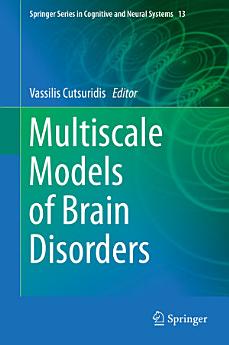Multiscale Models of Brain Disorders
এই ইবুকখনৰ বিষয়ে
In recent years, there have been significant advances in the study of the dynamics of the disordered brain at both the microscopic and the macroscopic levels. This understanding can be furthered by the application of multi-scale computational models as integrative principles that may link single neuron dynamics and the dynamics of local and distant brain regions observed using human EEG, ERPs, MEG, LFPs and fMRI.
Focusing on the computational models that are used to study movement, memory and cognitive disorders as well as epilepsy and consciousness related diseases, the book brings together physiologists and anatomists investigating cortical circuits; cognitive neuroscientists studying brain dynamics and behaviorby means of EEG and functional magnetic resonance imaging (fMRI); and computational neuroscientists using neural modeling techniques to explore local and large-scale disordered brain dynamics.
Covering topics that have a significant impact on the field of medicine, neuroscience and computer science, the book appeals to a diverse group of investigators.









